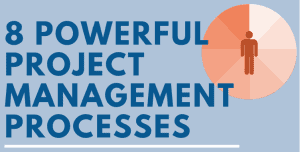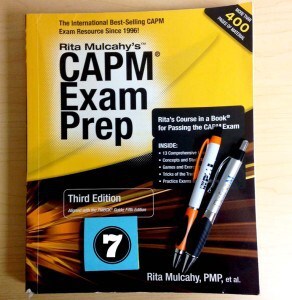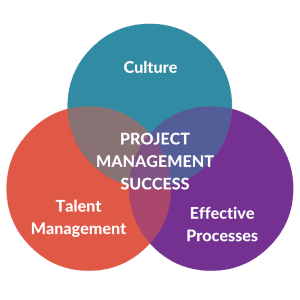Integrating Agile and Waterfall

A Tiered Approach to Implement the Guide to the Project Management Body of Knowledge (PMBOK® Guide) [Infographic]

You’re probably familiar with how complex the processes are in the Project Management Body of Knowledge (PMBOK® Guide), or else you wouldn’t be reading this post. With years of experience, we’ve learned that not every project needs the full PMBOK® Guide.
Eight Powerful Project Management Processes [Infographic]

Project managers are frequently asked to do more with less; in less time and with fewer resources. We’ve explored this issue and have come up with a solution. Through a series of eight blog posts, we present to you the “Eight Powerful Project Management Processes.” By following these eight essential processes, you will be able to get more done with less time and fewer resources. In this blog post, we present an infographic for an overview of all the eight powerful project management processes.
8 Tips for Tighter Project Schedule Management

Managing the schedule is a critical function of project managers. Most stakeholders want to know when they can expect value to be delivered from a project. If project managers do not have tight control of the schedule management process, they cannot relay this valuable information and are at greater risk of schedule slippage, delays, and project failure.
5 Warning Signs Your PMO Could Do More

Focusing the Daily Scrum

5 Signs That Your Staffing Is Stretched To the Limits

Seven Tips for Passing the Certified Associate in Project Management (CAPM)® Exam

The Certified Associate in Project Management (CAPM)® certification is for project managers who want to show their credibility or start taking on more project management roles. Anyone who has a secondary degree and at least 1,500 hours of project team experience, or at least 23 hours of project management education, is eligible.
These requirements are less strenuous than the Project Management Professional (PMP)® which requires both experience and education hours. The CAPM certification exam also has fewer questions than the PMP exam, takes less time, and draws solely from A Guide to the Project Management Body of Knowledge (PMBOK® Guide). In contrast, the PMP exam covers both the PMBOK® Guide and situational questions where project managers must draw from their experience to determine the best answer.
While the CAPM exam is not as involved as the PMP exam, it is not an easy exam. Candidates need to develop a strong study plan and study routine. In addition, they need to develop strategies to manage their confidence on the day of their exam. In our experience, candidates who cannot devote regular time to study or manage their time and confidence during the exam are more likely to fail. These tips help you prepare for and take the exam with confidence.
Top 5 Common Communication Challenges with Virtual Teams

As the workplace becomes more global, managing virtual teams is more of a norm than an exception. Virtual teams present unique team communication challenges. We have put together the top five common communication challenges with virtual teams and included tips to help you overcome them.
Returning to the Basics of Project Management

We have seen many times that successful project delivery comes less from having all the bells and whistles and more from effectively executing key processes. In previous posts, we have presented a series of eight project management processes that greatly increase the chance of project success on small- to medium-sized projects when executed properly. We have also presented ways to achieve similar results for smaller or larger projects, with a lesser or greater degree of complexity, number of full-time team members, and duration. These results are possible through using a tiered approach to project management rigor.
